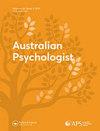支持LGBTQA+人群从性取向、性别认同和表达方式的改变中恢复
IF 2
4区 心理学
Q2 PSYCHOLOGY, MULTIDISCIPLINARY
引用次数: 4
摘要
【摘要】目的研究澳大利亚的女同性恋、男同性恋、双性恋、变性人、双性人、酷儿和无性恋(LGBTQA+)成年人如何尝试从宗教性取向和性别认同及表达改变项目(SOGIECE)中恢复过来,以及他们在这一过程中发现哪些支持是有用的。该研究通过其参照组对自称幸存者的观点给予了批判性的公共视角,并应用了布朗芬布伦纳的心理-社会视角,以确保心理学家所使用的研究是为幸存者而不是针对他们。方法通过两个焦点小组和访谈,收集35名年龄在18岁以上的澳大利亚SOGIECE幸存者的经历和观点的定性数据。研究结果表明,如果幸存者经历了三个条件,那么sogiece后的康复会更成功:人们肯定他们可以自由地自我-特别是健康和心理健康从业人员,家人和朋友以及幸存者支持团体;有足够的时间和内部动力,使支持有效;身份和信仰的冲突方面得以调和,在重建过程中凸显了幸存者的自主权。结论:SOGIECE幸存者需要考虑其发展生态各个层面复杂性的恢复计划;让他们接触到各种肯定的支持和想法。心理健康从业者应该特别小心,在治疗中突出幸存者的自主权,回顾他们可能经历过过去的虐待治疗/治疗动态。关于这个话题的已知情况:接触到性取向和性别认同和表达改变努力(SOGIECE)的人患许多精神健康状况的风险增加。暴露于SOGIECE的人自残和自杀的风险更高。SOGIECE幸存者需要明确的治疗考虑,将“病理”与SOGIECE的“负面影响”区分开来,并挑战过去的社会从众驱动。本主题补充:SOGIECE幸存者在恢复过程中需要社区(再)建设援助,使其与自己的信仰目标融合,避免与治疗师(信仰消极/信仰积极)的理想一致。SOGIECE幸存者在恢复过程中需要相当长的时间和不同的阶段,进行发展工作,讨论和协调身份、信仰和社会(再)参与的二元性。在最初的康复决策中,强调了与SOGIECE幸存者所呈现的身份密切相关的支持方法和资源,这些方法和资源在治疗过程中可能会有所不同。本文章由计算机程序翻译,如有差异,请以英文原文为准。
Supporting LGBTQA+ peoples’ recovery from sexual orientation and gender identity and expression change efforts
ABSTRACT Objective This paper reports on a critical survivor-driven study exploring how Australian lesbian, gay, bisexual, transgender, intersex, queer and asexual (LGBTQA+) adults attempt recovery from religious Sexual Orientation and Gender Identity and Expression Change Efforts (SOGIECE), and what supports they find useful in this process. The study privileged the critical communal lens of self-titled survivors of perspectives through its reference group, and applied Bronfenbrenner’s psycho-social lens, in an effort to ensure research used by psychologists was for and with survivors rather than on them. Method Qualitative data on SOGIECE survivor experiences and perspectives was collected using two focus groups and interviews including a total of 35 Australian SOGIECE survivors aged 18+ years. Results Findings suggested that post-SOGIECE recoveries were more successful if survivors experience three provisions: people who are affirming with whom to be freely themselves – especially health and mental health practitioners, family and friends, and survivor support groups; considerable time and internal motivation to enable support to be effective; and conflicting aspects of identities and beliefs are reconciled in ways that foreground survivors’ autonomy in their reconstruction. Conclusions SOGIECE survivors need recovery plans that consider complexities at all levels of their ecology of development; and diversify their exposure to affirming supports and ideas at all levels. Mental health practitioners should be especially careful to foreground survivors’ autonomy in therapies, recalling that they likely experienced past abusive therapies/therapy dynamics. Key Points What is already known about this topic: People exposed to Sexual Orientation and Gender Identity and Expression Change Efforts (SOGIECE) are at increased risk for many mental health conditions. People exposed to SOGIECE are at increased risk of self-harm and suicide. SOGIECE survivors need distinct treatment considerations distinguishing ‘pathology’ from SOGIECE’s ‘negative effects’, and challenging past social conformity-drives. What this topic adds: SOGIECE survivors need community (re)building aid in their recovery confluent with their own faith goals and avoiding conformity with therapists’ (faith-negative/faith-positive) ideals. SOGIECE survivors need considerable time and different phases in recovery processes, to do developmental work discussing and reconciling dualities in identities, beliefs and social (re)engagements. Support approaches and resources closely aligned to SOGIECE survivors’ presented identities were emphasised for the initial recovery decision-making, these could later vary more across treatment.
求助全文
通过发布文献求助,成功后即可免费获取论文全文。
去求助
来源期刊

Australian Psychologist
PSYCHOLOGY, MULTIDISCIPLINARY-
CiteScore
3.70
自引率
5.30%
发文量
32
期刊介绍:
The Australian Psychologist is the official applied practice and public policy journal of the Australian Psychological Society. As such, the journal solicits articles covering current issues in psychology, the science and practice of psychology, and psychology"s contribution to public policy, with particular emphasis on the Australian context. Periodically, Australian Psychological Society documents, including but not limited to, position papers, reports of the Society, ethics information, surveys of the membership, announcements, and selected award addresses may appear in the journal.
 求助内容:
求助内容: 应助结果提醒方式:
应助结果提醒方式:


